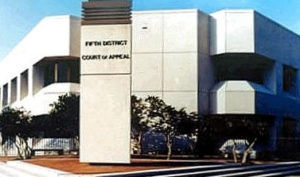Appeals 101: How do I Pay my Family Law Appeal Attorney’s Fees?
Family law cases are oftentimes stressful, lengthy, and expensive ordeals that can extend through trial court into the appellate courts. But the legislature recognizes that such cases are unique, and thus it provides an avenue for seeking some relief from the cost of attorney’s fees for these cases. As part of our continuing Appeals 101 series, here’s the scoop on getting your ex to pay for your family law appeal attorney’s fees — whether you are appealing an equitable distribution, a child custody order, or any other issue related to your marriage dissolution or custody dispute.
The basis for attorney’s fees in family law appeals
Section 61.16, Florida Statutes, allows a party to ask a court to force the other side to “pay a reasonable amount for attorney’s fees” in some family law cases. The purpose of the statute “is to ensure that both parties will have a similar ability to obtain competent legal counsel.” Rosen v. Rosen, 696 So. 2d 697, 699 (Fla. 1997).  “[I]t is not necessary that one spouse be completely unable to pay attorney’s fees for the trial court to require the other spouse to pay those fees.”  Id.
Section 61.16 also applies on appeal. The statute states “In determining whether to make attorney’s fees and costs awards at the appellate level, the court shall primarily consider the relative financial resources of the parties, unless an appellate party’s cause is deemed to be frivolous.” However, the court may also consider what are known as the Rosen factors (for the case from whence they came): “the scope and history of the litigation; the duration of the litigation; the merits of the respective positions; whether litigation is brought or maintained primarily to harass (or whether a defense is raised mainly to frustrate or stall); and the existence and course of prior or pending litigation.”  Rosen v. Rosen, 696 So. 2d 697, 700 (Fla. 1997).
Can I seek attorney’s fees before the appeal is over, or do I have to wait?
Another way family law fees are different is that, rather than having no choice but to wait until the end of the appeal to seek fees, there is a limited avenue for a party to seek fee assistance during the appeal. Florida Rule of Appellate Procedure 9.600(c)(1) says the trial court has continuing jurisdiction while an appeal is ongoing to enter orders awarding “temporary attorneys’ fees and costs reasonably necessary to prosecute or defend an appeal, or other awards necessary to protect the welfare and rights of any party pending appeal.” This means that a party can ask the trial court for assistance from the other side to pay for fees as they are being incurred for the appeal. In practice this procedure can sometimes be problematic, especially when the trial court does not have sufficient time to rule on such a request while the appeal is pending.  See Kasm v. Lynnel, 975 So. 2d 560 (Fla. 2d DCA 2008).
No matter the family law case, or whether a party has sought temporary fees with the trial court, the party that seeks an award of fees for the appeal should timely file a motion for fees with the appellate court under Florida Rule of Appellate Procedure 9.400(b). Failure to do so may result in waiver of any ability to claim those fees later.  See Rados v. Rados, 791 So. 2d 1130, 1131-32 (Fla. 2d DCA 2001) (“A trial court cannot award appellate attorney’s fees unless the appellate court has authorized such an award.”). A motion under rule 9.400(b) must be filed no later than the time for service of the reply brief.
How long will I have to wait for an award of attorney’s fees?
Don’t be surprised if the appellate court decides not to ultimately decide your entitlement to fees, instead sending your motion to the trial court. Unlike trial courts, appellate courts are simply do not have the capability to take evidence. Evidence may be necessary to determine the parties’ relative financial positions and the other factors discussed above. Consequently, the appellate court often relies on the trial court to take such evidence and make those determinations for it. Rados v. Rados, 791 So. 2d 1130 (Fla. 2d DCA 2001) (identifying the many ways that one appellate court handles such motions).
Most importantly, once an appeal is over, the trial court can only consider appellate fees with permission from the appellate court, usually based on a ruling on a timely-filed 9.400(b) motion. Even if you would otherwise deserve your fees on appeal under the statute or the Rosen factors, the trial court does not have the power to award them for your appellate efforts if the appellate court does not order it to do so. If you are in, or suspect you will be, in a family law appeal, contact us and we can help ensure that any rights you have to fees are properly raised and preserved.





